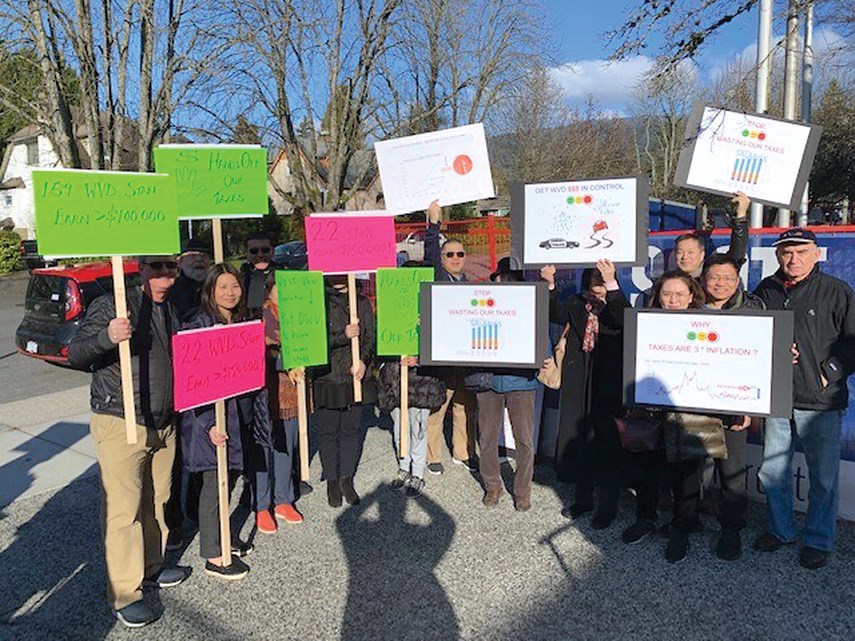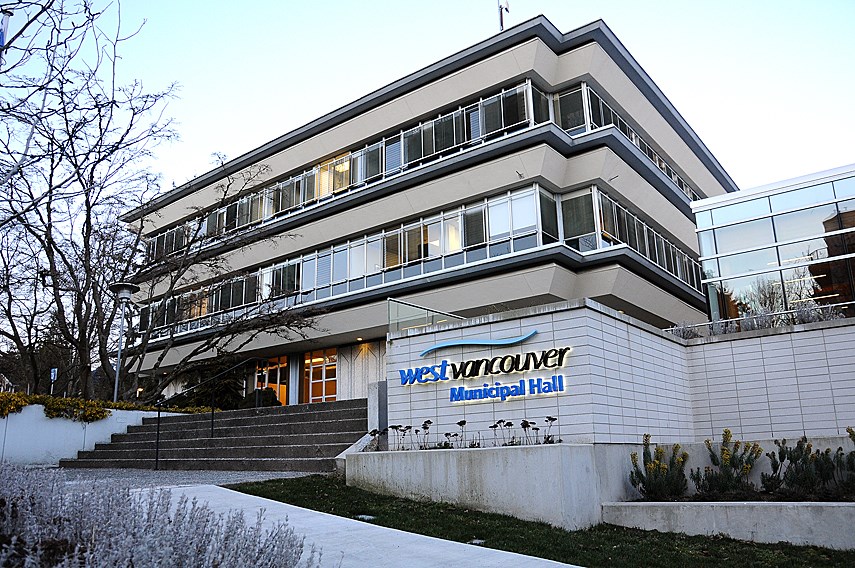District of West Vancouver council is chipping away at the proposed 2020 municipal tax increase, cutting back some planned spending on policing, planning and addressing climate change.
Homeowners can expect a 4.35 per cent bump in their municipal taxes this year. Council voted Monday night to advance the 2020 budget, bringing with it a 3.35 per cent increase in operating costs, 0.5 per cent more for the repair and replacement of aging infrastructure, and 0.5 per cent to help the district mitigate climate change.
For the owner of a single-family home assessed at $2.85 million, the budget is expected to result in a 2020 municipal tax bill $177 higher than 2019’s ($137 more for the operating budget and $20 each for the asset and climate levies).
When staff brought forward their preliminary budget in late 2019, they were calling for a 6.11 per cent overall increase, including eight new full-time positions in trail maintenance, policing and planning as well as a business manager and a full one per cent increase reserved for climate change.
Much of the operating increase is thanks to already negotiated labour contracts with the district’s police and fire crews and staff. But over the course of several hours, council members picked away at several proposed new full-time staff positions, looking for the ones that were nice-to-haves rather than must-haves.
Ultimately, over a series of votes, the divided council said no to a new senior planner and to the West Vancouver Police Department’s request for a new constable tasked with outreach to the growing immigrant population. As a result, the district will have to wait longer to complete its local area plans within the official community plan. Staff already eliminated one trail maintenance position.

Most controversial was the motion from Coun. Craig Cameron to cut in half the new proposed natural asset/climate response levy of one per cent, or $738,000.
Cameron said he felt the district should prioritize its spending on mitigating the expected impacts of climate change and that he would be looking elsewhere in the capital budget to find funds for further reducing the community’s carbon output before the budget is passed.
“We need to be prepared when we have sea level rise issues, storm issues and increase in forest fires,” he said.
The motion to chop the climate fund from one per cent to 0.5 found support from Couns. Bill Soprovich, Sharon Thompson, Marcus Wong and Peter Lambur.
Lambur said he wasn’t comfortable with the one per cent increase when the district did not yet have a clear path for how it would reduce its greenhouse gas emissions to meet its climate goals.
“None of you around this table can say what is enough either and how we’re going to fashion the budget or a strategy to deal with the issue within the capabilities and priorities of this municipality,” he said.
Coun. Nora Gambioli said one per cent should be the “bare minimum” when council knows that combating climate change will require expensive things like heat pump incentives, foreshore projects, pedestrian and cycling infrastructure, greener public buildings and fleet vehicles, wildfire protection and public education.
Gambioli said she was “super disappointed” given that council unanimously declared a climate emergency less than eight months ago.
“Our actions should be supporting this belief and they are not. And if our actions don’t really support the belief that we said we had, then I really feel like we are hypocrites. I refuse to be a hypocrite,” she said.
Mayor Mary-Ann Booth agreed, and criticized council for undermining their own declaration of an emergency by only setting aside $350,000 out of a $300 million budget for it.
“I think it’s actually disingenuous that we declare an emergency and that we don’t actually allocate sufficient funds. We almost allocate the same to public art and we don’t have a public art emergency,” she said. “They say that a principle is not a principle until it costs you money. And that’s where we’re at.”
Before the budget comes up for its first official vote at the end of March, staff will draw up a list of climate-related measures that council may choose to spend the money on.
The district is the proud owner of $1-billion in assets, all of which will require replacement or capital investment to be maintained over the next 20 years, according to district staff. The municipality only began taking inventory and setting aside money for that with the annual asset levy increase in 2016. It was deeply controversial at the time but the 0.5 per cent increase in the annual asset levy proposed for 2020 drew little criticism from council or the public.



